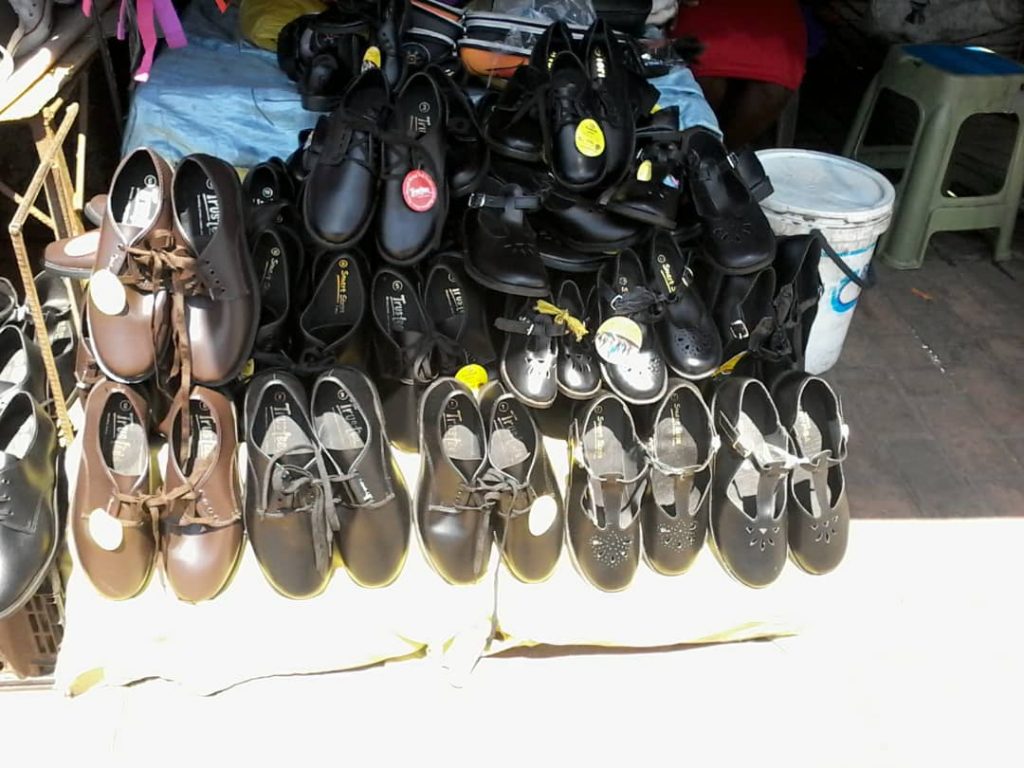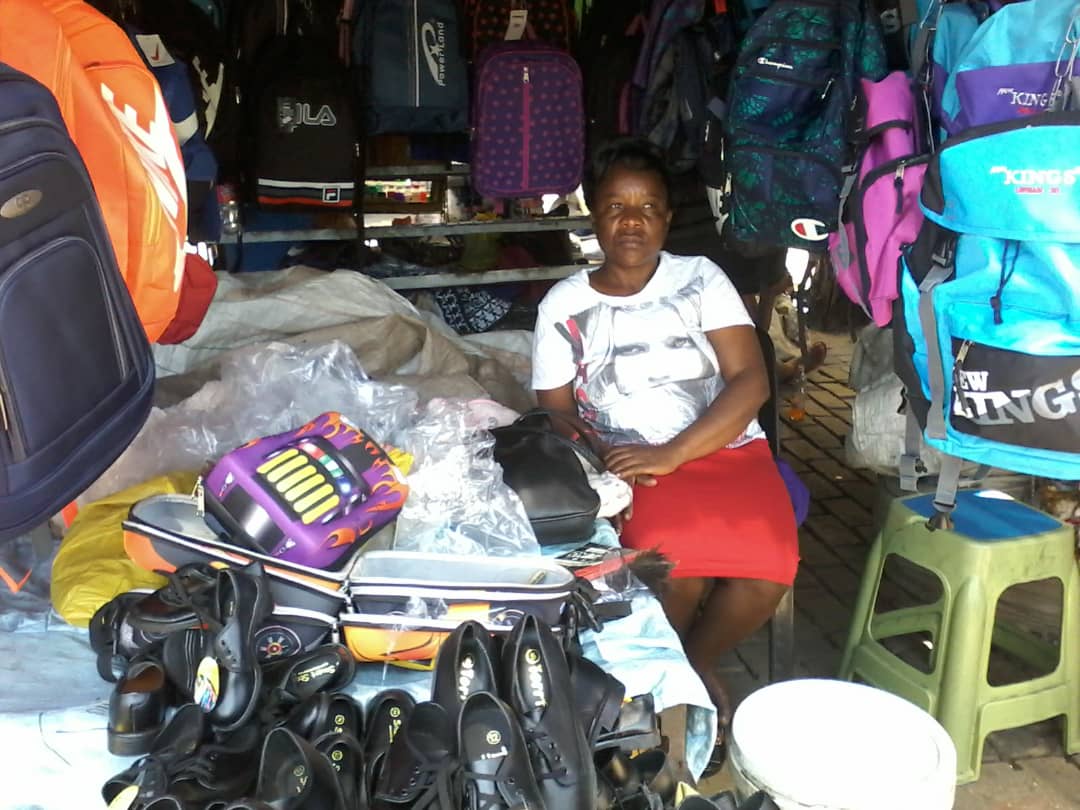… as shops take advantage of the back-to-school rush
Parents and guardians in Bulawayo have complained that shops have taken advantage of the back-to-school rush, as they have increased stationery and school uniforms.
Schools opened today and the Central Business District was awash with parents who were on a last minute rush, buying goods for their children.
In a survey in the city centre, CITE observed parents buying school uniforms from the black market than in shops.
On the streets, a pair of school shoes is ZW$50 unlike in a shop where they sell for double.
At Toppers, primary school uniforms for Grade 3 learners for boys and girls ranged between ZW$194 and ZW$196 respectively while on the black market, school uniforms were priced ZW$30.
Sunhats on the streets cost ZW$10 with school stockings ranging from ZW$10 to ZW$15 yet in supermarkets, a pair of stockings was ZW$24 and satchels ranged from ZW$100 going upwards.
At a local supermarket, Pick n’ Pay, a 32 page exercise book was selling for a ZW$2.99, a 72 bond page exercise book was priced ZW$6.99, while Khaki and Plastic covers ranged between ZW$3 and ZW$4.
At Choppies supermarket, a 32page exercise book was on promotion going for ZW$1.15.
Parents who spoke to this publication confirmed they preferred buying from street vendors as they were negotiable.
However, they also complained that a number of vendors in the streets now preferred cash as the only payment method, rejecting mobile transactions such as EcoCash.
“I usually buy my children’s stationery from the streets, as that is a cheaper alternative but the challenge, I am facing is sourcing cash to pay for what I want,” Nomathemba Siziba said.
She also expressed dismay that most banks were out of cash, a situation that has forced them to purchase some of the expensive products from shops.
If I don’t manage to buy cash, I will forced to go to a supermarket and pay using EcoCash,” Siziba said
Another parent, Thandiwe Nyathi, concurred that supermarkets wanted to make profits at their expense.
“Stationery is very expensive in supermarket,” she said picking up bond paper, which was tagged ZW$59.99.
“I used to buy this same bond paper for less than ZW$10.I have to buy it as I have no choice since I have no cash on me.”
Tafadzwa Ndaba, a street vendor said business was booming following the opening of schools.
“Business is going on very well as from Monday and today. Satchels and school shoes are the most popular buy,” he said.
“A pair of school shoes is ZW$50 but we have to negotiate with the customer. Since we reduce the price we have to ask for cash because rather than other forms of payment.”

Another vendor, Annah Maphosa, noted that mobile transactions made it difficult for them to stock up on more goods, as the charges were too high.
“The opening of schools comes with business but the problem is that most people use EcoCash, which makes it difficult for us when we want to buy our stocks, across the boarder. Cash is better as it is better to change into another currency,” she said.
“You will notice that most suppliers who used to stock exercise books are no longer selling this time as they transacted mostly in EcoCash and they failed to restock.”
Meanwhile, a shop attendant at Toppers who refused to be named, claimed that even though people preferred to purchase uniforms from street vendors they later faced challenges if they wanted to return them.
“Sometimes parents purchase wrong colours of uniforms and they have to be returned for correct clothing. But one discovers that it is difficult to do so if they buy from the streets. Yes, our uniforms may be very expensive, but these are the normal prices. It is better for parents to buy clothing that may be expensive but has quality and is correct,” he said.

